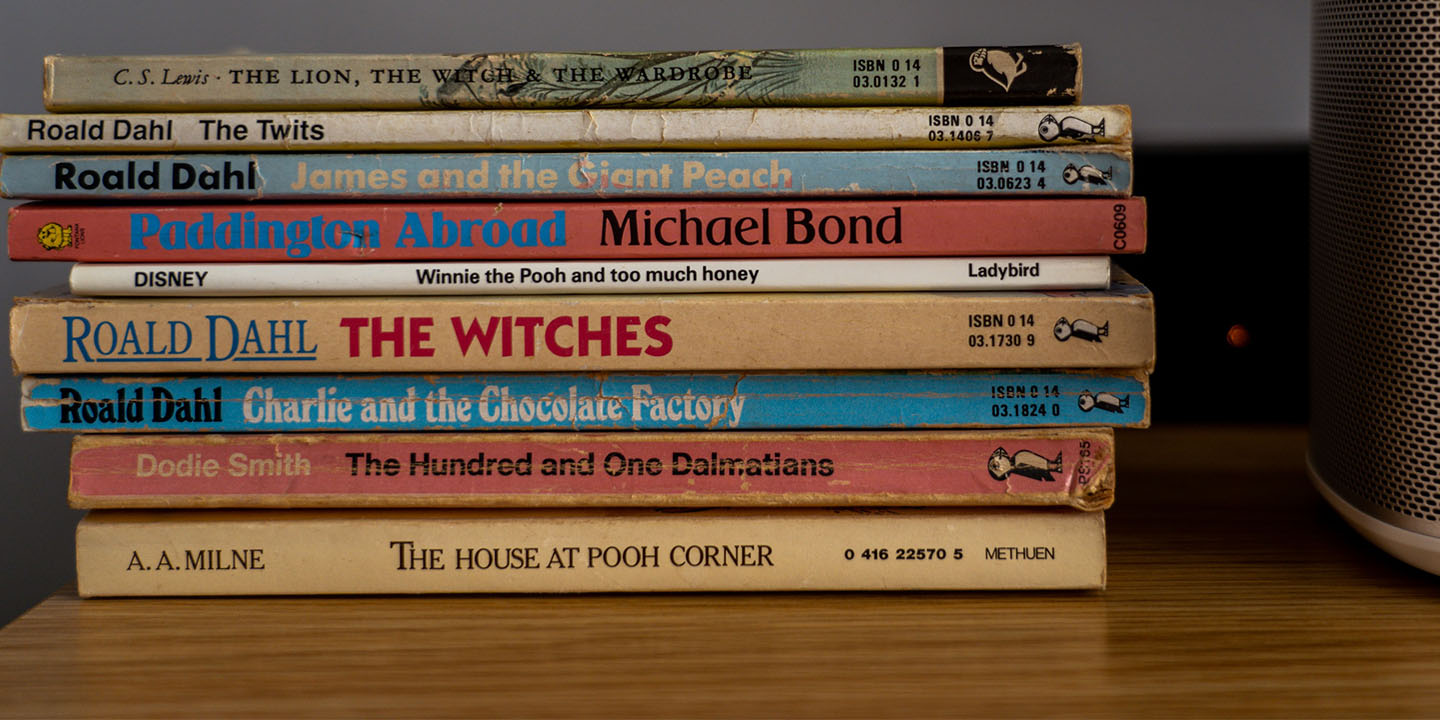How Books Can Boost Your Health
You might think reading is a passive hobby, but it does far more for your brain than you realize. From helping you sleep better at night to strengthening your problem-solving skills, picking up a book comes with surprising health benefits. Curious how? Here are 10 ways reading improves your health—and, if you're currently in a slump, we've got 10 tips that just might help.
1. Helps You Sleep Better
To practice better sleep hygiene, you're often told to read for an hour or two before bedtime. But why does reading help us get better rest? Well, your brain is like a muscle, and it, too, gets tired when it's constantly processing text. It's why you'll naturally feel more relaxed whenever you pick up a book.
2. Reduces Stress
Many people use reading as an escape, and for good reason: the immersive experience that reading gives us is unlike any other. And if you feel less stressed every time you pick up a book, it's not a placebo effect; research has shown that the more books we consume, the calmer and happier we are.
3. Strengthens Memory
Whenever you read a book, you're given facts and details that you'll need to remember in order to understand the story as it moves forward. You might even connect a new piece of information with something you read earlier on. All of this helps strengthen and improve your memory.
4. Increases Empathy
We become more empathetic through reading, simply because we're able to see and understand the world from different perspectives. As we parse through conversations and conflicts between the characters, we strengthen our emotional intelligence. Plus, we might even mourn people who don't even exist.
5. Prevents Cognitive Decline
Sure, you can do fun puzzles like Sudoku or crosswords, but there are other ways that might help prevent cognitive decline. In fact, research has shown that reading can delay and protect the brain from developing neurological disorders, such as Alzheimer's, because how we dissect and process texts helps challenge our minds.
6. Teaches Social Skills
Reading also teaches us social and communication skills. As we read through pages of dialogue and interactions between characters, we build a deeper understanding of emotions, conflicts, and contexts, which helps us gain a better sense of the world around us.
7. Boosts Creativity
It's no surprise that reading boosts creativity. Every time we pick up a book or explore different genres, the stories in them encourage us to build our own ideas. Whether it's through art or writing, we're often inspired long after we've flipped to the last page.
8. Encourages Imagination
Books encourage us to imagine the scenes written in them. From wizardry worlds to soaring dragons, the reason we can get so immersed in the stories we read is because our brains help us paint out the text. Sometimes, we don't even need detailed descriptions—our imagination just knows how to fill in the rest.
 Masjid Pogung Dalangan on Unsplash
Masjid Pogung Dalangan on Unsplash
9. Strengthens Problem-Solving Skills
As you read what a character in a story is going through and what they'll need to do to overcome their obstacles, you build and strengthen your problem-solving skills. On top of this, books allow us to see different perspectives, which challenge us to think outside the box.
10. A Coping Mechanism for Grief
If you're going through a rough patch in your life, reading might help. Not only do the stories they tell provide an escape, they also typically touch on themes that resonate deeper, and life lessons you wouldn't have learned anywhere else.
Feeling inspired yet? If you're currently in a slump, we can help. Read on for 10 easy tricks to get back into reading:
1. Re-Read a Favorite
If you're not feeling motivated enough to start, let alone finish, a whole new book, don't force it—you'll only end up more discouraged. Instead, pick up a title you've read and loved before, and flip through it again. Re-reading old favorites may help bring back that spark.
2. Switch Genres
If you've never really dabbled outside your comfort zone with reading, this is your chance to. Instead of always sticking to one genre, try switching it up, swapping romance for mystery, or fantasy for science fiction. Who knows? You might find a new favorite.
3. Try Short Stories
If regular novels are too long for you and flipping through them seems more like a task than an enjoyable activity, try novellas and short stories. They're much easier to finish (and to get into) than a 300-page book, which might just inspire you to read again.
 Photo By: Kaboompics.com on Pexels
Photo By: Kaboompics.com on Pexels
4. Read Poems
For something even more bite-sized, try reading poetry. They're just as easy to digest as short stories, except they're even shorter. Plus, if you write on the side as a hobby, poetry can help you strengthen your prose style.
5. Join a Book Club
Feel discouraged reading alone? Join a book club! Reading with others may just be the trick to getting you out of your slump, since you'll be able to dissect and chat about each chapter with a group. You might even gain new perspectives during these discussions.
6. Set a Small Goal
Instead of shooting too high (like saying you'll read 50 books when you're still in a slump), aim for more attainable goals. You don't even need to do them by number of books; in fact, it might help to just set a number of pages or chapters to read each day.
7. Listen to Audiobooks
If it's the act of reading that tires you out and makes you lose focus, then listening to audiobooks might help. Plus, the great thing about this alternative is that you often get more of a feel of the story and its characters, thanks to the narrators. This might make it a lot more immersive and enjoyable.
8. Find a Buddy
If joining a book club sounds too daunting and too much of a commitment, you can try something smaller but similar, such as finding a reading buddy. Grab a friend to read the same novel with, and you'll be able to encourage each other to get through it as you discuss each chapter amongst yourselves.
 Anastasiia Rozumna on Unsplash
Anastasiia Rozumna on Unsplash
9. Do a Challenge
Got a competitive spirit? Then maybe doing a reading challenge will help. Try setting a realistic, feasible goal, such as finishing 10 books in a year. Aiming for a lower number might encourage you to want to shoot beyond it, and every title you finish will motivate you further.
10. Take Up Writing
This might sound unusual, but if you don't already write as a hobby, try your hand at it. You'll find that it encourages you to read, because by consuming more books and texts, you widen your perspective and strengthen your vocabulary. Reading and writing go hand-in-hand, and it might just be the trick to get you out of your slump.

























